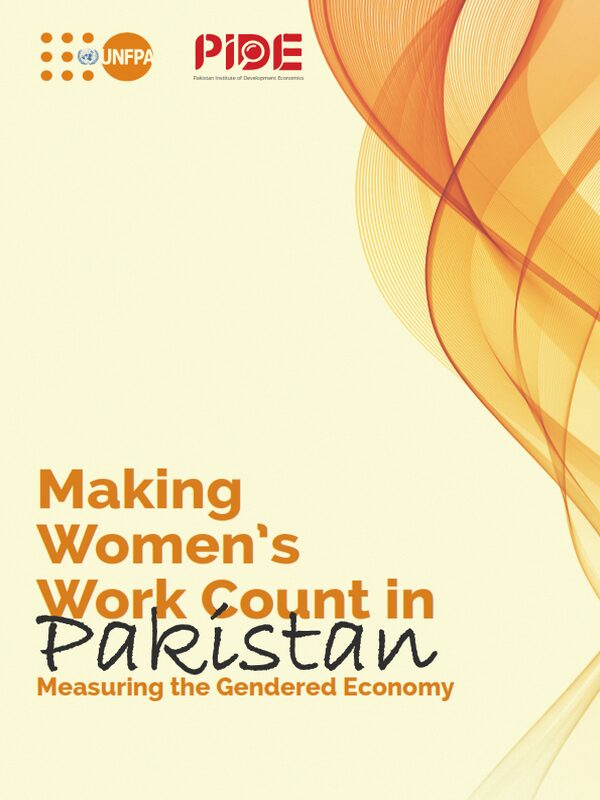Making Women’s Work Count in Pakistan: Measuring the Gendered Economy
- Introduction
Household tasks such as cooking, cleaning, looking after children, and caring for the elderly play a crucial role in the overall well-being of households and society. Childcare is particularly significant as it ensures a future workforce for production and economic advancement. The performance of these tasks is indispensable for sustainable economic growth, but, its importance is not acknowledged as the focus remains on the activities that are considered ‘economic’ in the conventional definition of work in the labour market. It is also worth noting that those who carry out these duties within households do not receive any monetary compensation, and hence the notion of these being ‘non-economic’ activities.
Since these activities demand a considerable amount of time, individuals involved in such tasks have limited time left for paid employment, personal leisure, education, or any other pursuit. How household chores are divided among family members can have far-reaching implications for the economic, social, and educational status of each member. Studies (like Craig, 2006, and Bianchi, 2000) have consistently demonstrated that the allocation of household work is closely tied to gender, with women undertaking a larger share of these responsibilities and subsequently dedicating more time to them than men.
The percentage of time spent on housework is likely to be influenced by household income, primarily for two reasons. Firstly, higher-income households can afford domestic help, which reduces the need for family members to spend extensive time on housework themselves. Secondly, household income influences the type of technology adopted for performing household tasks. Lower-income households are often limited to labour-intensive methods due to budget constraints, while wealthier households can invest in capital-intensive technologies that save time. This implies that individuals from lower-income backgrounds tend to spend more time on housework compared to those from wealthier backgrounds. Consequently, gender disparities in housework responsibilities might be less pronounced in affluent households than in less privileged ones.
The extent of gender inequality concerning the division of housework can vary across different countries, influenced by their level of economic development. It would not be wrong to state that most of these tasks, which remain unpaid and are not included as contributing to the labour market, are performed by women in Pakistan. Housework technology in developing nations like Pakistan might rely more on manual labour and time-consuming methods compared to the more advanced technologies used in developed economies.
Pakistan is a signatory of the SDGs, and achieving those is an aim of the country. The SDG 5 talks about gender equality, for which the target 5.4 states, “recognize and value unpaid care and domestic work through the provision of public services, infrastructure and social protection policies and the promotion of shared responsibility within the household and the family as nationally appropriate”.
The valuation of the unpaid work in this study, thus, aims to estimate the magnitude of unpaid work performed in the country and the gender differences found in carrying out such tasks. The study, thus, examines the distribution of housework between genders in Pakistan to shed light on the potential gender disadvantage faced by women. It also aims to provide insights into policies aimed at reducing the time women spend on housework and enhancing their economic empowerment.
A recent research (Neha, Rao Akhtar et al.; 2020) examined how tasks, both paid and unpaid, are gendered and distributed between men and women within the household. Paid work, encompassing the market economy, is generally considered to be a men’s activity. Unpaid work, too, can be categorized as economic if it aligns with the United Nations System of National Accounts (SNA) production sectors or non-economic if it falls beyond these sectors (Hirway, 2015). It is important to note that not all unpaid work falling in the prior category is factored into the calculation of the Gross Domestic Product (GDP). As women tend to be more involved in unpaid work of the latter type (that is work that does not fall in the SNA), excluding it from GDP computation significantly underestimates their economic input to national progress.
According to data published in the UN Women’s flagship ‘Progress of the World’s Women 2019-2020’ report, for every one hour a Pakistani man spends on unpaid care and domestic work, a Pakistani woman spends 11 hours doing the same. The current study, thus, quantifies and then monetises all such work.





